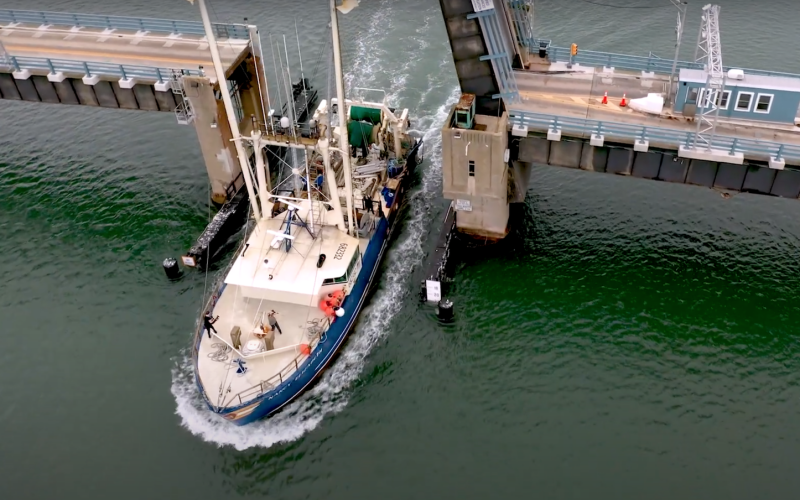William Bright, Wayne Reichle, and Stefan Axelsson manage commercial fishing businesses in New Jersey, targeting Atlantic herring. For many years, fishermen like Bill, Wayne, and Stefan have been required to carry federal observers on their vessels when venturing into the Atlantic to catch herring. These observers are mandated to ensure that the fishermen comply with legal catch limits, aiming to prevent overfishing.
However, in 2020, NOAA Fisheries overreached the authority granted to the agency by law, and decided that herring fishermen should directly pay the observers' salaries, potentially costing them up to $700 per day. According to estimates, the cost of the observers could amount to over 20 percent of the revenue from their catch.
Consequently, Reichle, Bright, and Axelsson filed a lawsuit against the federal government in Loper Bright Enterprises v. Raimondo.
"From the beginning, the most important thing for us was the ability to continue fishing and continue operating the way we've operated for a number of years," Wayne Reichle told Scripps News.
Meghan Lapp, fisheries liaison at Seafreeze Ltd. in Point Judith, Rhode Island, homeport of the fishing vessel Relentless, faced similar issues. Ms. Lapp noted that their complaints went through fisheries council meetings and NOAA officials, but to no avail.
"I was ignored the entirety of the time because the agency knew it would have deference if it ever got to court," Ms. Lapp told National Fisherman. Thus, they filed Relentless, Inc. v. Department of Commerce.
The implications of these cases extend far beyond the shores of New Jersey and Rhode Island.
Today, in its decision on Loper Bright and Relentless, the Supreme Court has overturned “Chevron deference,” a 40-year-old legal precedent.
“If the intent of Congress is clear, that is the end of the matter; for the court, as well as the agency, must give effect to the unambiguously expressed intent of Congress,” Justice John Paul Stevens wrote for a 6-0 court in the 1984 Chevron opinion. But “if the statute is silent or ambiguous with respect to the specific issue,” the Chevron precedent dictated that courts should defer to interpretations by the agency charged with implementing the law.
Chevron has long been criticized by some, particularly conservatives, for granting excessive power to federal agencies and unelected officials. By this decision, the Court significantly limits the authority of agencies to interpret ambiguity in statutes, and use that ambiguity to create regulations that can affect extensive areas of American life and commerce.
Sen. Dick Durbin of Illinois, the Senate’s No. 2 Democrat, expressed disappointment, telling the Wall Street Journal that “Federal agencies use the latest scientific analyses and expert opinions to implement widely popular programs that ensure safe food and medications, clean air and water, stable financial markets, fair working conditions, and more.”
If Federal agencies always used the latest science appropriately, never overstepped their bounds, and never allowed appointed or unelected career officials to enact their own agendas, Senator Durbin would be 100 percent correct. But that is not always the case. If James Madison were alive today, he might say, “If regulators were angels, no limit on judicial deference would be necessary.”
As the ramifications of this decision propagate through the lower courts and agencies, perhaps it will become increasingly incumbent upon Congress to do its job, and write clear, detailed legislation. It may be optimistic, but if this ruling diminishes the habit of our elected officials to pass last-minute ambiguous legislation that leaves important details to unelected officials in agencies, it will be a good thing.
Congratulations to the owners, operators, and crew of these “little boats that could,” and to the attorneys who believed in them, and the merits of their case.
Robert Vanasse is the executive director of Saving Seafood.







